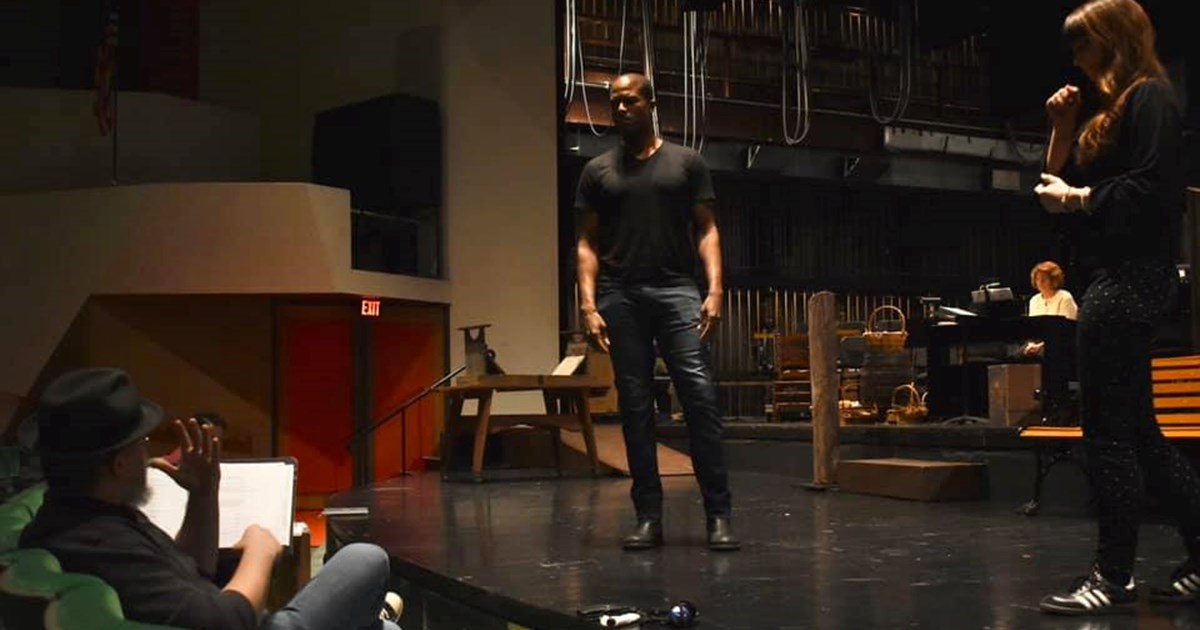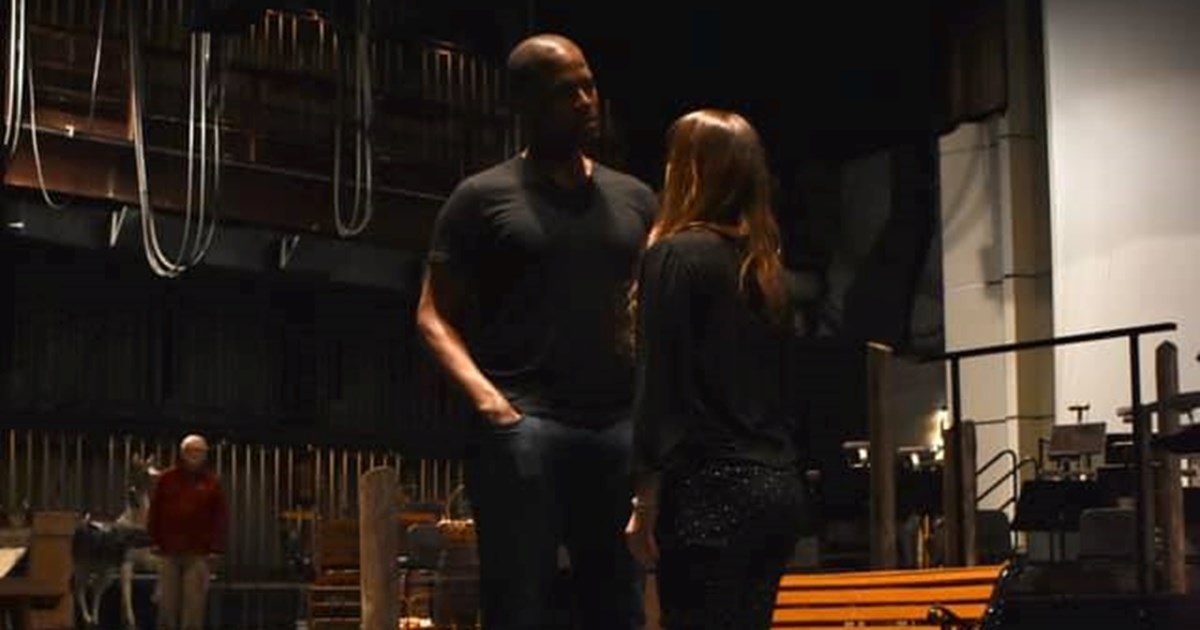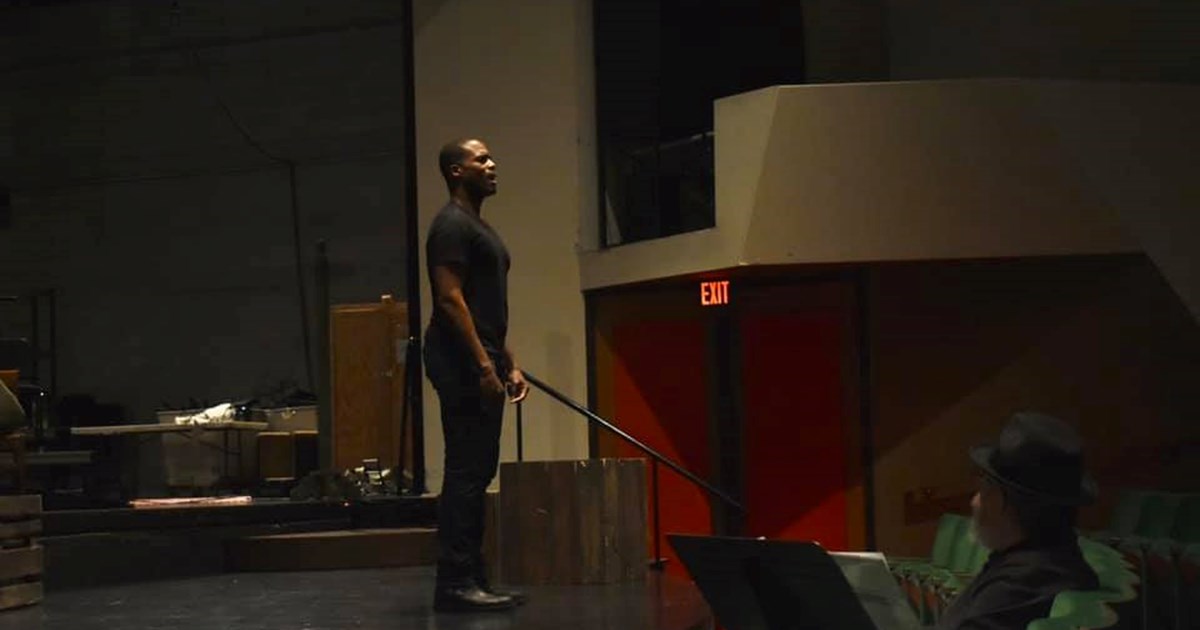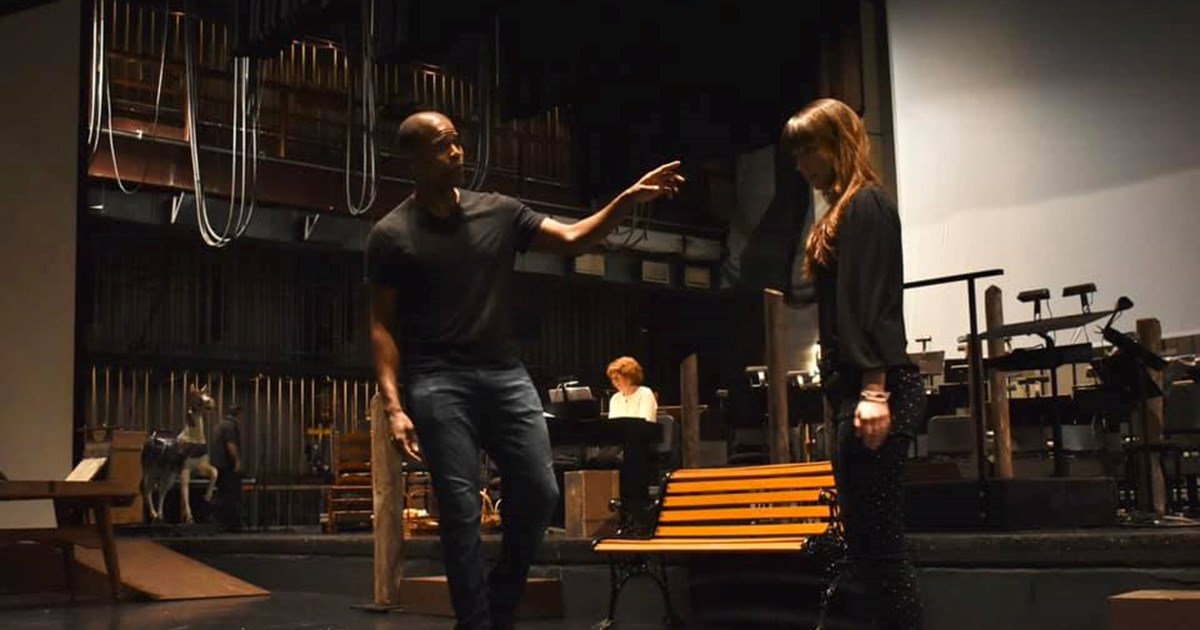As we get ready to present our concert staging of Rodgers and Hammerstein’s Carousel at Midland Center for the Arts, it’s important to reflect back on our collective journey with this play, both here at the Center, and within the American community at large. I first directed Carousel in 2012 and, while I was aware of the musical’s identity as an early masterpiece of the Broadway canon, I was struck by how the play seemed ambivalent to, if not to outright endorse, domestic abuse. Julie’s oft-quoted line from the show, “It is possible, dear, for someone to hit you, hit you hard, and it not hurt at all,” appeared to be a cringeworthy example of romanticized victimhood. This brought some tough questions to the table: Did Richard Rodgers and Oscar Hammerstein intend this? Were they ambivalent towards the domestic violence that they wrote into their show? Is this a reflection of an era in which women were still considered property? Did they consider this a love story that we, the audience, should enjoy and celebrate?
Fortunately, as we dived deeper into the play, we discovered a simple truth: our collective impulse to dismiss Rodgers and Hammerstein’s plays as happy-go-lucky, All-American fare from a simpler time has caused us to miss the point of Carousel. Carousel is not a love story.
Let me say that again: Carousel is not a love story.
That’s an important fact, because it changes how we perceive Billy and Julie’s relationship, and it changes how we perceive the writers’ view of the relationship. Instead of a problematic love story, Carousel is intended to be the story of a damaged, angry young man who hurts everyone around him, and how he learns that the damage he inflicted has continued to reverberate long after he leaves. Julie’s line that I mentioned earlier isn’t intended to dismiss the abuse, but is rather a heartbreaking depiction of how victims often reconcile their love for their abuser.
We have spent quite a bit of time talking about this as a cast and engaging with community members who can help us guide these conversations. It’s important to us that we get this right, not just because we refuse to glorify or excuse domestic violence, but also because Carousel is a complex piece of theatre that is worth seeing with new eyes. Erin Whitfield, the actor who plays Nettie Fowler in our production, brought a very personal perspective to the conversation:
I’m really pleased and impressed with the response of the production team & the Center to the sensitive material in the show, as they have demonstrated true effort to foster awareness and discussion within our community. We sat down as a cast at the initial rehearsal and dove right into the issues and vision for the show. For me, that first talk and rehearsals since have revealed the relevance and necessity of this show in our modern time.
Society – “back then” and now – judges victims of abuse, whether they choose to remain in a problematic situation and, if they leave, for staying in the first place. We see attempts at support from Julie’s friends and community, and Nettie (her only family) offers what support she can. However, Julie is still stigmatized years later by a society that seemingly values the look of a “successful” family (i.e. the Snows) over helping a broken one. We have come far in public awareness and empowerment of domestic abuse victims, especially women, but as a society we still have a long way to go in terms of overcoming victim blaming.
This show is meaningful for me on a personal level, having lost someone to domestic violence and stalking three years ago. Our family continues to heal year by year, but her loss will always be keenly felt. “You’ll Never Walk Alone” sits deep in my heart as an anthem for my family and those who grapple with the grief of losing someone suddenly.
Erin is not alone in the emotional impact the themes of the play have had on us. Jenny Lowe, a featured ensemble member of the cast, shared her thoughts as well:
At first I struggled to come to terms with the show- it's darkness, portrayal of women, and abuse. Then I realized the story is not just one for 75 years ago, but for our day as well. It's a conversation starter for very deep and important discussions: how do we react to victims of abuse? Both as individuals and as a community? One of the most difficult moments for me in the script is when Julie confides in her best friend, Carrie, that her husband hit her. Carrie asks if it hurt, and when Julie said it didn't, Carrie changes the subject to tell Julie about her wonderful new man. I hope I would never respond like that, but acting in this performance has cause me to evaluate whether I am equipped with the knowledge and tools to help my friends if they come to me-- whether that's because of abuse, mental illness or any other hardship.
Carousel has caused me to open my eyes to others and to look more deeply into the hearts of those with whom I associate. Are there people in my circle like Julie and Louise who are unsafe at home, but hiding their pain? Are there other Billys out there who are doing some horrible and inexcusable things, but acting out of their own pain and suffering? If the audience goes into the performance with an open mind and heart, not only will they experience world class entertainment, but they will come away pondering how they can be more kind and compassionate people to others.
If the hallmark of a great play is that it keeps us talking, feeling and thinking generations after it was written, then Carousel, which is possibly more relevant now than it ever has been, is deserving of its place among Rodgers and Hammerstein’s achievements.
Midland Center for the Arts’ concert staging of Carousel, which will feature the Midland Symphony Orchestra, Center Stage Theatre and the Choirs of the Center sharing the stage with Broadway guest artists performing under acclaimed conductor Richard Carsey’s guest baton, will run open Saturday, March 7 at 7:30 p.m. and Sunday, March 8 at 3 p.m. For tickets, visit midlandcenter.org or call 989-631-8250.






